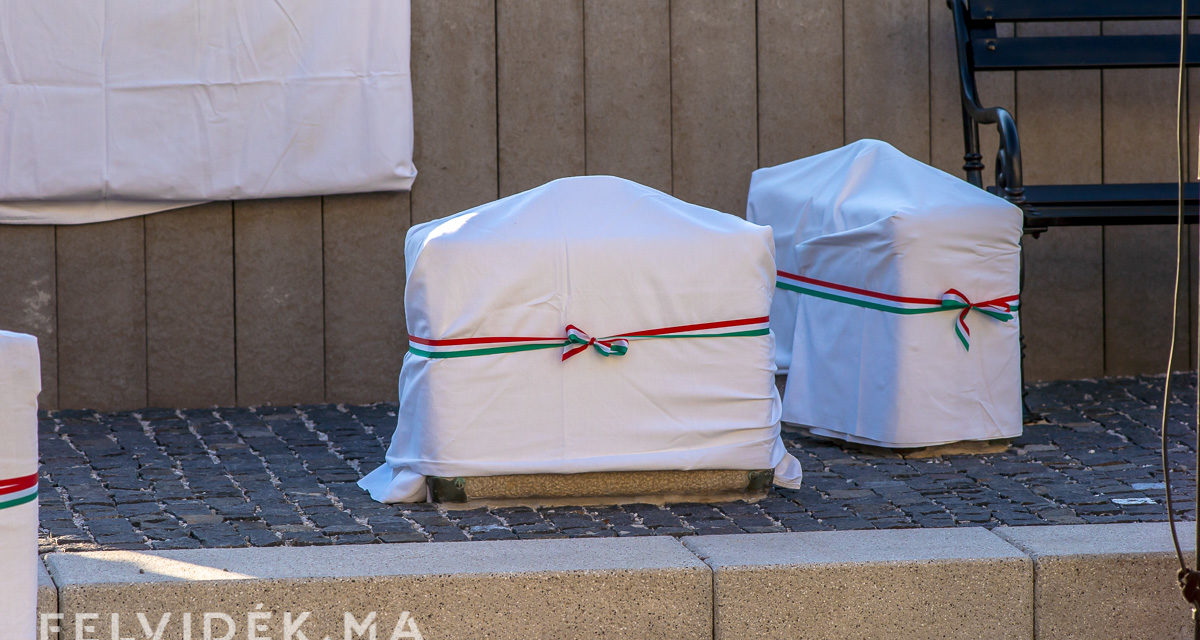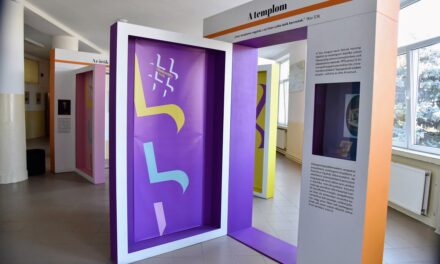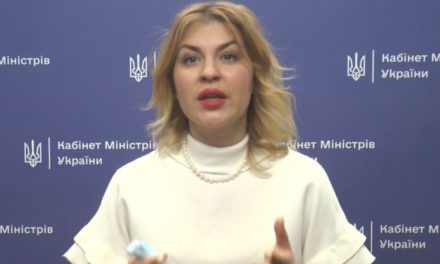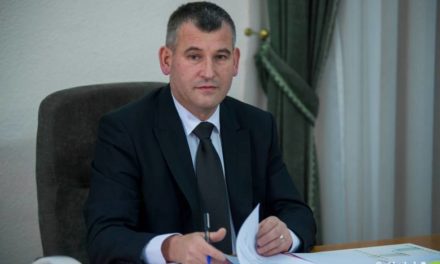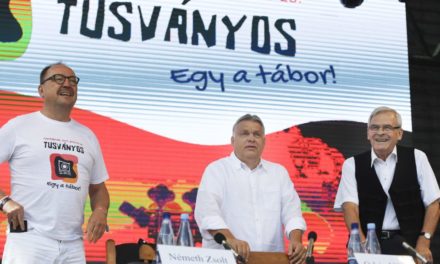We Hungarians have learned in the last hundred years that we can only truly win if no one in Central Europe and the Carpathian basin loses, László Kövér said on Monday at the handover of the memorial to the displaced Hungarians in Somorja in the Uplands.
The President of the National Assembly stated that the nations of Central Europe cannot assert their national interests by relying on the goodwill of the great powers, regardless of each other, and especially considering each other as rivals.
"We do not believe that they will be able to survive as a nation and preserve their freedom, culture and sovereign states by resisting the pressure of global background powers that intend to reduce even the great powers to mere tools," the politician declared. László Kövér pointed out that only the cooperating Central European national states can defend against the globalist attacks aimed at the spiritual and moral disintegration of their societies, so that their citizens can preserve their gender, family, religious and national identity, and thus the national states retain their right to exist in the future.
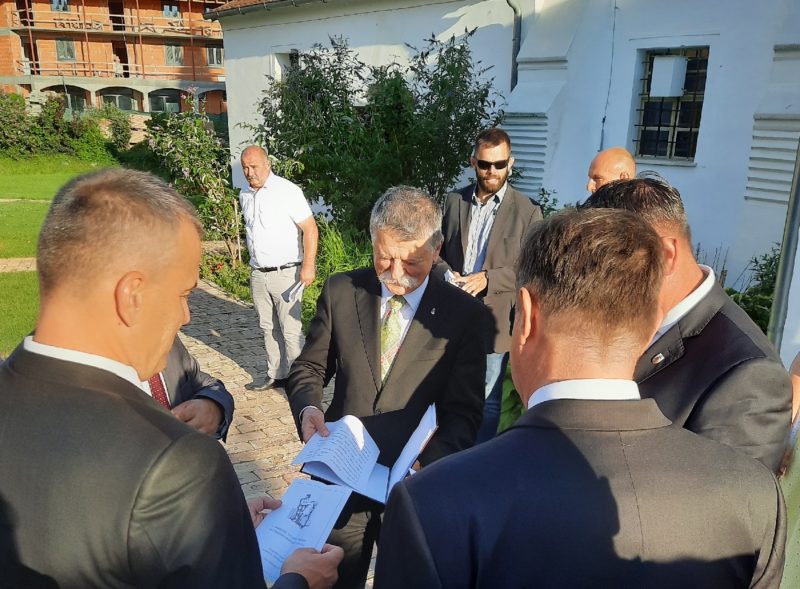
László Kövér Somorján/Felvidek.ma The President of the Parliament reminded that in the Basic Law Slovaks in Hungary were recognized as a state-creating factor, they were provided with the institutional system of cultural autonomy and the financial resources for its operation were increased by the Parliament to six times the size of 2010.
The Hungarian state condemns any principle of collective guilt.
He followed our Jewish compatriots, with a parliamentary resolution condemning the expulsion of the Germans from their homeland in Hungary, and declared the beginning of the resettlement of Hungarians from the highlands as a national day of remembrance, László Kövér declared. Within the regional cooperation framework of the Visegrád Four - and beyond - Hungary strives for a confidence-building policy with its partners in the region, which enables the most difficult open issues to be mutually acceptable in interstate relations, said the politician.
He added that, thanks to this, Hungary and Serbia came close to being able to end the 20th century, burdened with mutual conflicts, not only in political statements, but also in their souls. century past.
Based on all of this, we have reason to be confident that this policy will find more followers and supporters, and we also have a moral basis to wait with gentle but steadfast patience for the gesture of apology and reparation for the crimes committed against the Hungarians in the past, for the sake of the peace of the generations that come after us - with these words László Kövér concluded his speech.
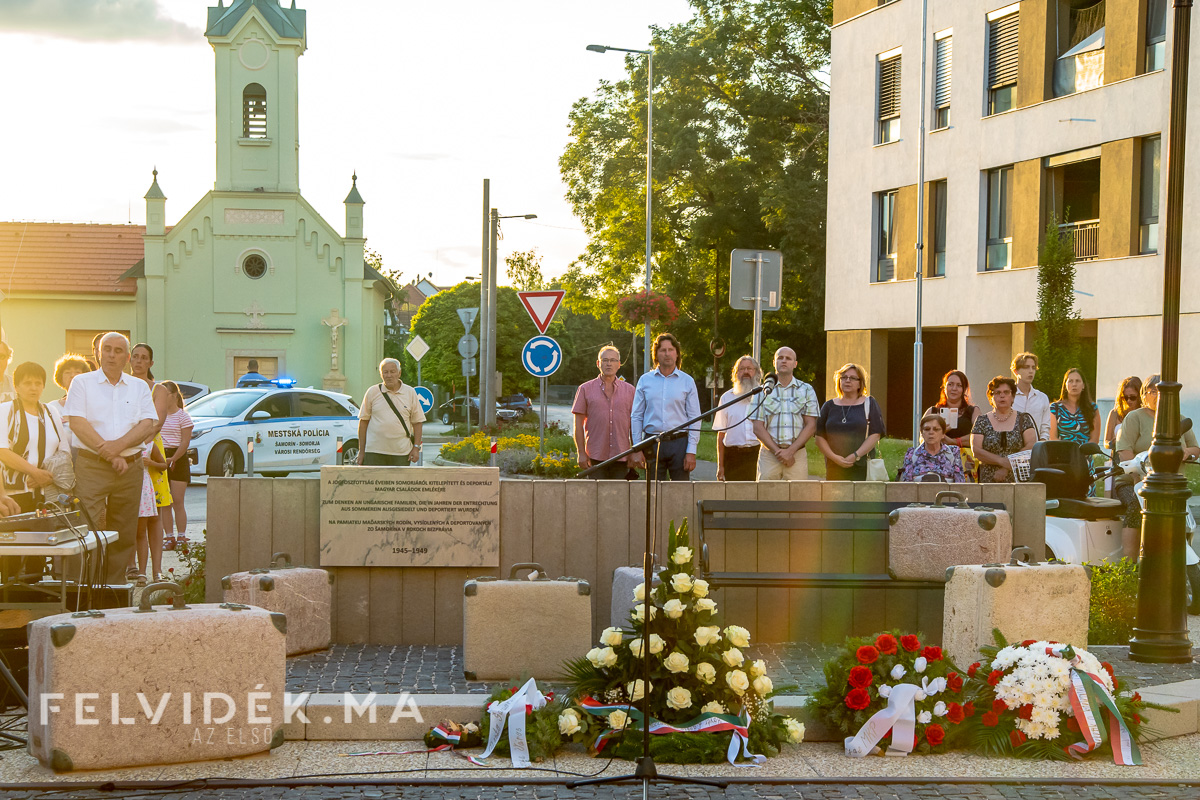
Memorial with suitcases in Somorján/source: velvidek.ma
The Monument to the Magyars Displaced from Sorrow depicts several suitcases made of stone, prepared for the journey, created by the sculptor György Lipcsey. In 2017, the Via Nova Somorja Youth Group (the youth organization of the Hungarian Community Party), Csemadok Somorja, Somorja Hangja, Magyar Polgári Kör and Vest Music & Culture started a collection in 2017. According to the recollections of local historian László Horváth, according to contemporary documents, 813 inhabitants of Somorja were taken to forced labor in the Czech Republic.
The Benes decrees, enacted between May and October 1945, avenged the dismemberment of Czechoslovakia on the Hungarian and German populations, and deprived the non-Slavic population of their citizenship, property and jobs. Nearly 170,000 Hungarians left the territory of the state, forced to leave their possessions behind. The laws were preserved in the legal systems of Czechoslovakia after the regime change, as well as the Czech and Slovak states that were separated, with the exception of some decrees.
Source: MTI/Felvidek.ma
(MTI)

